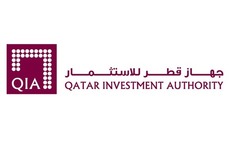
Profile: Unitas Capital's Jim Tsao
After years spent trouble-shooting as a grain trader, brewery exec and food company CEO, Jim Tsao became a partner at what is now Unitas Capital. He first discovered what PE was when headhunted for the role
Jim Tsao began his career by setting up a business venture during his time at university. He didn't try and set up his own investment fund. Nor did he champion a food and beverage company, although he would go on to work in this area in later years. No, Tsao - now a partner at Unitas Capital - experienced his first real taste of business running a bookings agency for Chinese folk music singers.
Capitalizing on a music style that was growing in popularity in 1970s Taiwan, he spent his free time at university liaising with performers and record companies. "It was more for fun than for making money," he recalls. "I had an office set up at home and we did get a bit of commission from it."
But making money soon started to take on greater significance in Tsao's life. Aware that the starting salary for a university graduate in Taiwan was around $100 a month, he decided to relocate to Chicago to study an MBA. He was subsequently offered a job with Continental Grain, then the world's second largest grain trading company. "When they called to offer me the job with a salary of $1,300 a month, I still remember that was one of the happiest times of my life," says Tsao.
Back to Asia
He stayed with Continental Grain for five years, buying and selling vessel-loads of corn, wheat and soya beans first in Chicago, then Portland, then New York. When the company started a Hong Kong-based joint venture with Thai agri conglomerate CP in 1986, Tsao was asked if he wanted the role of procurement manager. At the time the venture was suffering from a lack of raw materials.
After three years heading Continental's Asia presence, and a further five years at one of the biggest feed companies in Taiwan, Tsao turned his hand to brewing and joined Australia's Lion Nathan, the country's second largest beer firm. Tsao was recruited to help the business expand into China. "Every region priced its beer very differently," he remembers. "The average beer price in Shanghai was around RMB0.80 ($0.12), but we found this brewery called IN WUXI just 150 kilometers away selling its beer at RMB2 per bottle."
Lion Nathan decided to buy WUXI, which was profitable from the outset. Meanwhile, Fosters, the firm's arch rival in Australia, did a joint venture in Shanghai around the same time. It lost money every year for three years before closing its doors in China. "We felt pretty good about that," says Tsao.
In 1997, on his 40th birthday, Tsao was recruited to be the CEO of Lam Soon, a Hong Kong manufacturer of flour and edible oil. He had had always wanted to run a listed company, but the downside of his enthusiasm was that he hadn't looked too carefully at the company's weaknesses. After Tsao joined, he found it was almost bankrupt. "There were days when I worried whether we'd be able to make the next pay check. We had to scrape every penny we had in the system to pay the banks back," he says.
Tsao's solution was for the company to divest its non-core businesses and concentrate its resources into the areas where it was strongest, namely flour milling and edible oil. The strategy paid off. After five years, Lam Soon had cleared all of its debt and become the number-one player in southern China.
Plant or smuggle?
One year during this period, Lam Soon-owned Hong Kong Flour Mill - based in China - was hit by a government ban on wheat imports from overseas. The company relied on premium wheat from the US and Canada, and Chinese wheat didn't meet the grade. "The customs office allowed us to import the goods without the quota, but we realized that it could have been perceived as smuggling," says Tsao. "Then the customs office began to talk about shutting us down, so every time I went through the border I worried about getting detained. My wife cried every time."
Again, Tsao found a solution to the problem. He realized that the only way was to work with Chinese farmers to plant high-quality wheat. Lam Soon planted a combination of low-protein wheat (used in barbecue buns) and high-quality bread wheat. Within two years, the company was buying local premium-quality wheat - never before harvested in China - in abundance.
Tsao was CEO of Lam Soon for eight years. By that time he was almost 50 and the opportunity to work at what was then known as J.P. Morgan Partners emerged. Despite not knowing what private equity was at first, Tsao was persuaded to become a partner at the firm - now Unitas Capital - in 2005. Initially he found it challenging to not be able to drive changes at companies in person. "Rather than being the captain of the team where you can kick the goal when the opportunities are there, you have to persuade the players they should kick the ball the way you suggest," he says.
Over time, however, Tsao's outlook on the private equity industry changed, and he has remained at Unitas for the past seven years. "Now I'm more like the coach, or the owner of the team. When you find the best player to play, and this player becomes the hero and scores well, it actually gives you a more profound sense of satisfaction. I enjoy making people into a hero rather than being a hero myself."
Latest News
Asian GPs slow implementation of ESG policies - survey
Asia-based private equity firms are assigning more dedicated resources to environment, social, and governance (ESG) programmes, but policy changes have slowed in the past 12 months, in part due to concerns raised internally and by LPs, according to a...
Singapore fintech start-up LXA gets $10m seed round
New Enterprise Associates (NEA) has led a USD 10m seed round for Singapore’s LXA, a financial technology start-up launched by a former Asia senior executive at The Blackstone Group.
India's InCred announces $60m round, claims unicorn status
Indian non-bank lender InCred Financial Services said it has received INR 5bn (USD 60m) at a valuation of at least USD 1bn from unnamed investors including “a global private equity fund.”
Insight leads $50m round for Australia's Roller
Insight Partners has led a USD 50m round for Australia’s Roller, a venue management software provider specializing in family fun parks.







